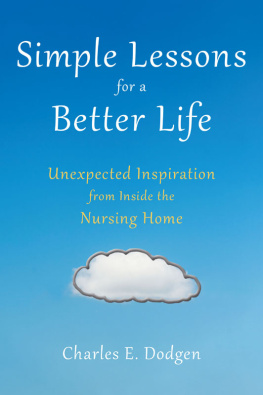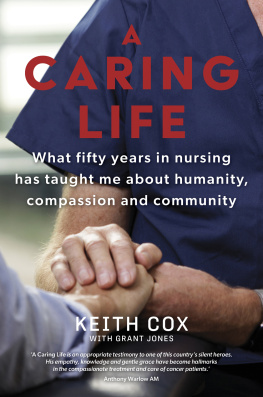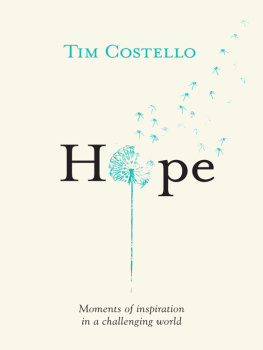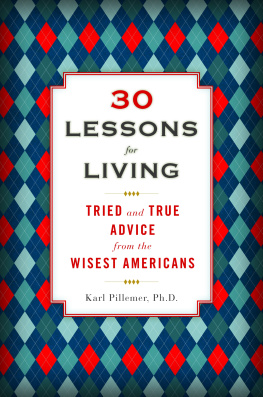
I wish to express my heartiest appreciation to Dr. Lynne Sacher and Dr. Diane Klein; I am most fortunate to know these estimable women, both of whom are superb psychologists and gifted writer-editors. A valued mentor, Dr. Sacher generously provided her talents from start to finish. In addition to the technical-writing assistance she brought, the encouragement she offered helped sustain my efforts through a challenging work schedule. Dr. Klein, a gracious and trusted friend and colleague, was supportive from the inception of this project and contributed significantly to early versions of the manuscript.
My incredible personal support system maintained a consistently positive presence throughout the writing process. In addition to providing emotional sustenance, my wife, Lisa, offered helpful feedback on the manuscript. My daughter, Danielle, assisted in these ways as well. My son, Christopher, and in-laws Joseph and Annette Calabrese were enthusiastic supporters all along the way. Close friends John King and Rand Harris were ever ready with inspiring words.
It is a privilege to provide services at the nursing home, one that I could not enjoy without administrative approval. I am thankful for the administrative support that I received (and continue to receive) at the nursing home from Michael Duffy and Kenneth Bittman. Social workers Linda Cohen and Fay Ross have been wonderful colleagues; both also read an early version of the manuscript and offered helpful feedback and support. I want to thank all those who provide services at the nursing home and who make it the special care center that it is, including the medical staff; those in admissions, nursing, physical therapy, occupational therapy, speech therapy, dietary, food services, housekeeping, and maintenance departments; and those in the business office.
Thanks also go to Steven L. Mitchell at Prometheus Books for providing this opportunity to publish my work, and to my agent, Joyce Hart, for her kind and gentle assistance with this project. I would like to additionally acknowledge the work of Jade Zora Scibilia, my editor at Prometheus Books who helped considerably to improve the manuscript.
Finally, I am forever grateful to the residents and families at West Caldwell Care Center for the opportunity to work with and learn from them.

When psychologists discuss termination, they are usually referring to the end of treatment. Ideally, it is a decision arrived at by mutual agreement, in which both patient and therapist feel that satisfactory progress has been achieved. In the nursing home, many of my cases end in this traditional manner, with improvements in a resident's mood or adjustment to the facility, for example. Sometimes, however, treatment ends when a resident is no longer able to benefit from therapy because of worsening physical or mental conditions. It is a special challenge and honor to work with individuals in their final stage of life. Because of the uniqueness of the work environment, where I essentially coexist with residents in their living space, I am able to observe and interact with them in a way that has proven exceptionally fruitful for revealing lessons about life and humanity. In this book, I have documented twenty-eight simple lessons from this endeavor. Below is a summary of the lessons, with discussions of some of the individuals who helped me develop these invaluable insights.
Lesson: Although suffering in life is inevitable, we can mitigate it.
We are confronted by the unavoidable encounter with adversity and its emotional ramifications. A confluence of catastrophic factors bore down on Jonathan, generating suffering: he was ill, with respiratory and cardiac conditions; he had endured premature losses of his only two children; and he was facing the impending loss of his wife. Jonathan's tragic experiences engendered feelings of sadness, anger, hopelessness, and helplessness. And yet I assisted him to experience less anguish by compassionate intercession. Helping Jonathan illustrated that even when sources of pain are unalterable and cataclysmic, sorrow can be relieved by the empathetic response of another. When we are experiencing heartache and distress, the receipt of consolation is restorative. Similarly, we can assuage others in such need. The capacity to heal requires only the most natural and basic acts of kindnesswhich we can all furnish.
Lesson: Love is an irreducible, lifelong requirement for health and well-being.
During World War II, astute mental-health practitioners observing children from London who were housed in foster homes and orphanages established that loving human relationships are a vital necessity, on the order of food and water. With satisfactory relationships we can flourish; without them we wither and suffer.
Frank and Angelo were two nursing-home residents whose situations illustrated the principle that the quality of an individual's relationships is a leading determinant of his quality of life. Both gravely ill, Frank with ALS, and Angelo with Parkinson's disease, they had dramatically different relationships with their respective families. Frank maintained affectionate relations with his children and his spirits were high. Angelo, on the other hand, expressed anger and hostility to his children and was very unhappy most of the time. Moreover, Frank's sour disposition pushed other residents away, only adding to his loneliness and torment. Fortunately for Frank, compassion provided by staff workers and me ensured that he received the essential emotional sustenance he required. That Frank was responsive to caring interventions of professional staff workers illustrates the general principle that humaneness is a powerful nutrient, regardless of the source.
Lesson: Pain, injury, illness, or setbacks of any kind involve distress and demoralization; recovery requires trust and courage.
A setback can cause a crisis of faithwe may wonder if we are up for the challenge to bounce back. Physical and psychological problems are particularly daunting and can result in demoralization, a loss of fighting spirit. Tim was in the nursing home following hip-replacement surgery. His negative attitude and halfhearted efforts in physical therapy were symptomatic of a problem with morale. Tim had no faith in his surgeon, the nursing home, and worst of all, himself. He questioned if he were worth fixing and if he had the fortitude to endure the effort and pain required to recover. Tim also lacked a sense of purposehe wondered why he should improve himself, just to live in a nursing home. Restoring Tim's morale consisted of instilling hope, bolstering his self-efficacy, enhancing his family connections, and defining a clear and meaningful purpose. Once his motivation increased, he participated more earnestly in his rehabilitative services and achieved improvements in his physical and emotional functioning. The nursing home always had provided the way, but Tim needed to find his will.
Lesson: The anguish associated with loss is necessary to help with separation from the lost person, image, or belief; to promote affiliation for comfort; and for emotion regulation.
Loss is a necessary evil. A clearing away of the old or obsolete is required to make room for the new and improved. Even emotional responses that accompany losssadness and dejectionserve positive purposes. Our experience of sorrow pushes us to move forward by detaching us from lost people or things and to seek the support of others. Our distress also encourages our friends and family to console us. By acting as a point of contrast, our emotional suffering also allows us to appreciate the highs of life when they occur.
Next page










